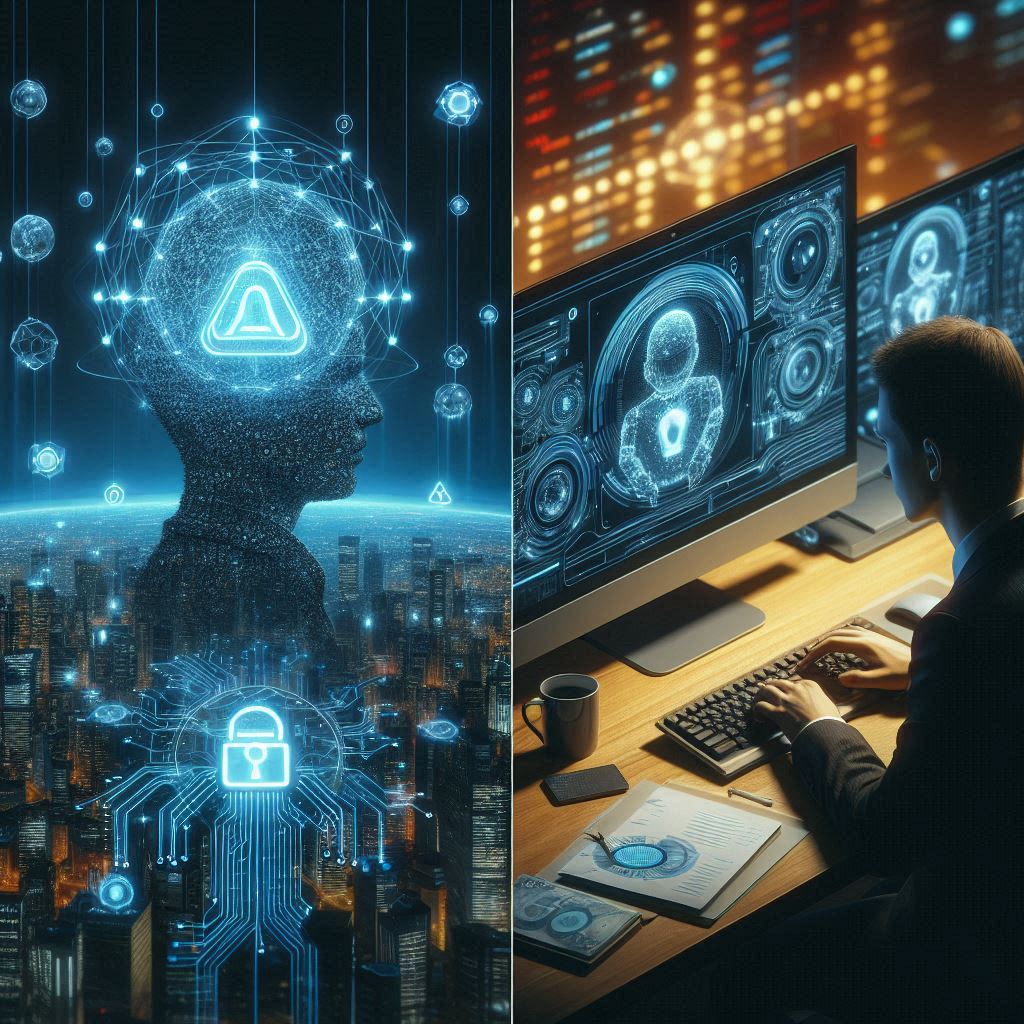As artificial intelligence (AI) continues to advance, the question of whether it will replace cybersecurity jobs is gaining traction. With the power to analyze vast datasets, detect anomalies, and automate threat responses, AI is undoubtedly reshaping the cybersecurity landscape. However, the future of cybersecurity jobs is not as clear-cut as simple replacement by AI. In this article, we’ll explore the role of AI in cybersecurity, its potential to complement or replace human expertise, and what this means for the future of the industry.
The Role of AI in Cybersecurity
AI has proven its value in cybersecurity by automating repetitive tasks, identifying threats faster than human analysts, and improving overall detection accuracy. AI systems can process and analyze large amounts of data in real time, which enables faster responses to potential security breaches. Moreover, machine learning algorithms can “learn” from past data, continually refining their ability to detect cyber threats, even ones that haven’t been seen before.
The advantages of AI in cybersecurity include:
-
- Speed and Efficiency: AI can process information much faster than humans, allowing for quicker threat detection and response.
-
- Accuracy: Machine learning models can reduce false positives, increasing the precision of threat detection.
- Scalability: AI systems can handle increasing amounts of data, making them ideal for growing businesses with expanding security needs.
-
- Consistency: Unlike human workers who may be prone to fatigue or human error, AI systems maintain consistent performance.
Will AI Replace Cybersecurity Professionals?
While AI can handle many tasks traditionally done by cybersecurity professionals, it is unlikely to fully replace them in the near future. Instead, AI is more likely to enhance their roles. Here’s why:
- Human Expertise Is Still Essential: Cybersecurity is not just about analyzing data — it’s about understanding context, motives, and tactics of cybercriminals. Human analysts are critical in interpreting complex threat landscapes and making strategic decisions.
- Creative Problem Solving: AI excels at pattern recognition and automating known processes, but human professionals are better at creative problem solving and adapting to novel situations, particularly in dealing with sophisticated attacks that deviate from patterns.
- Ethics and Trust: AI systems may not always make decisions that align with ethical considerations. Human oversight is necessary to ensure that cybersecurity measures do not overreach or infringe on personal privacy.
- AI’s Limitations: While AI is improving, it is still prone to errors, such as false positives or misclassifications of threats. These systems require ongoing monitoring and tuning, which necessitates skilled professionals who understand both cybersecurity and the underlying technology driving AI systems.
How AI Will Change Cybersecurity Jobs
Instead of replacing jobs, AI will likely shift the focus of cybersecurity professionals towards more strategic and analytical roles. Some of the changes include:
-
- Focus on AI Management: Cybersecurity professionals will need to develop skills in managing and refining AI systems. They will oversee AI deployments and ensure these systems are correctly aligned with business goals.
-
- Data Analysis and Interpretation: AI will automate much of the threat detection process, but professionals will still need to interpret and act on the findings. They’ll be required to analyze the insights provided by AI and develop actionable strategies.
-
- Incident Response: AI can identify threats, but human teams will still be needed for decision-making and managing crisis situations when a breach occurs.
- AI and Security Strategy Integration: Professionals will need to develop strategies that combine AI capabilities with traditional security measures, creating hybrid approaches that take advantage of the strengths of both.
Potential Drawbacks of AI in Cybersecurity
While AI has many benefits, there are also challenges to its widespread adoption:
- Over-reliance: If companies place too much trust in AI systems, they may overlook the importance of human judgment and oversight. This could lead to security vulnerabilities that AI systems aren’t designed to handle.
- AI’s Vulnerability: AI systems themselves can be targets for cyberattacks. If an attacker manages to manipulate or poison the data that AI systems rely on, it could lead to incorrect decisions or leave an organization vulnerable to attacks.
- Job Displacement Concerns: While AI is unlikely to fully replace cybersecurity jobs, it will automate certain tasks, potentially leading to a reduction in demand for entry-level or routine roles. However, this shift may also create new job opportunities in AI system management and cybersecurity strategy.
A Hybrid Future: AI and Human Collaboration
The future of cybersecurity lies in a hybrid approach, where AI systems and human professionals work together. AI will handle the bulk of the repetitive, time-sensitive tasks, freeing up cybersecurity experts to focus on strategy, creative problem-solving, and incident response. By working in tandem, AI and human professionals can create a more robust and adaptive defense system that is greater than the sum of its parts.
Organizations that embrace this collaboration will not only strengthen their security postures but also remain competitive in an increasingly digital and AI-driven world. The key is to view AI as a tool that augments human capabilities, not as a replacement.
Conclusion
While AI will undoubtedly change the way cybersecurity professionals work, it is unlikely to replace them altogether. Instead, AI will serve as a powerful tool that enhances human capabilities and shifts the focus of cybersecurity roles towards more strategic, analytical, and creative tasks. As AI continues to evolve, it will be crucial for cybersecurity professionals to stay informed and adapt their skills to work alongside these new technologies.
